RARE! Original WWII August 1945 "RESTRICTED" Terminal Conference Germany Surrender Report
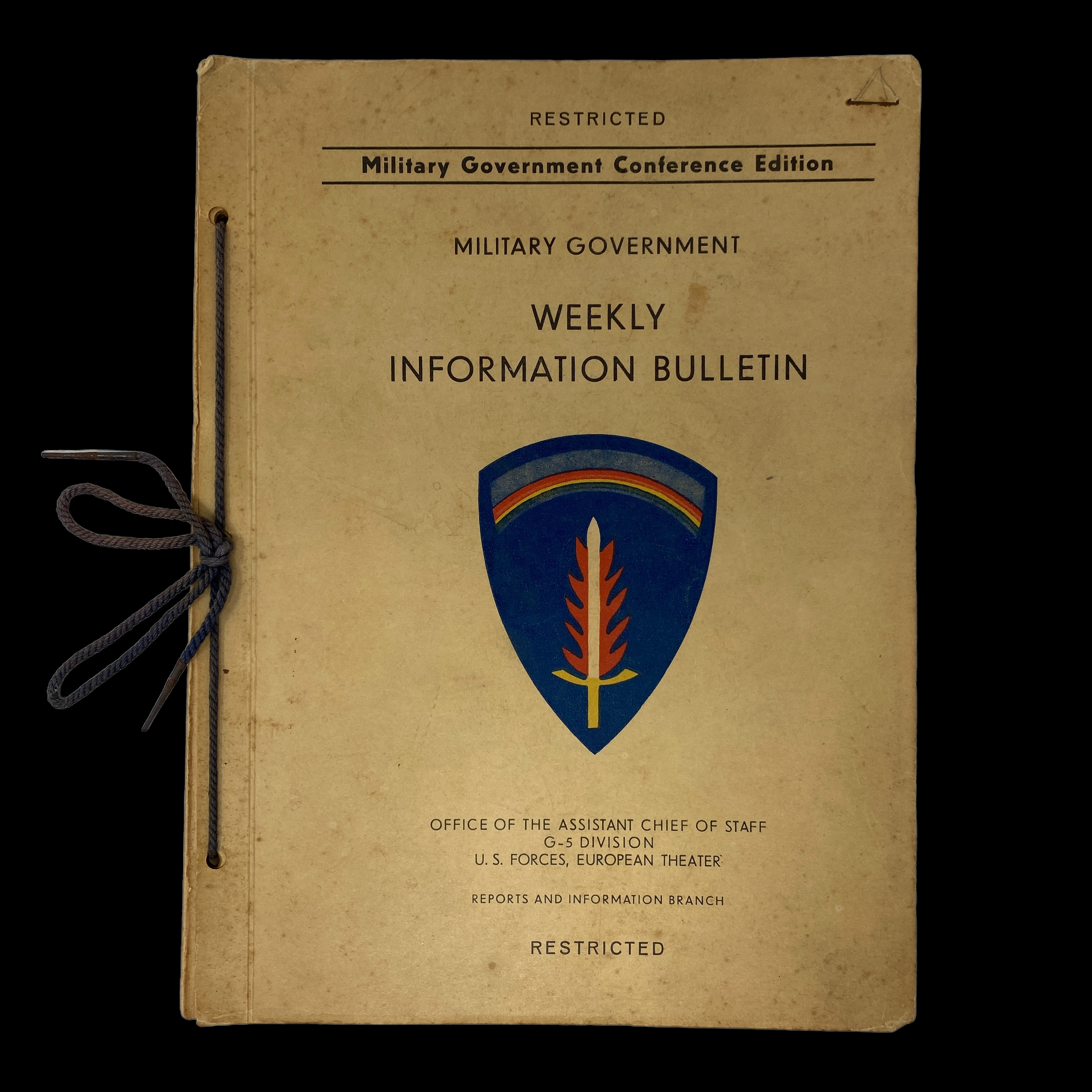
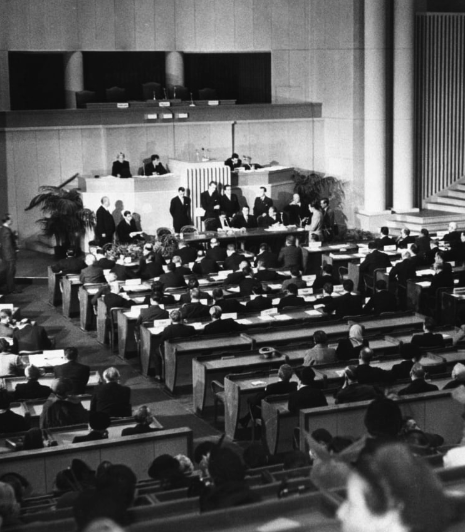
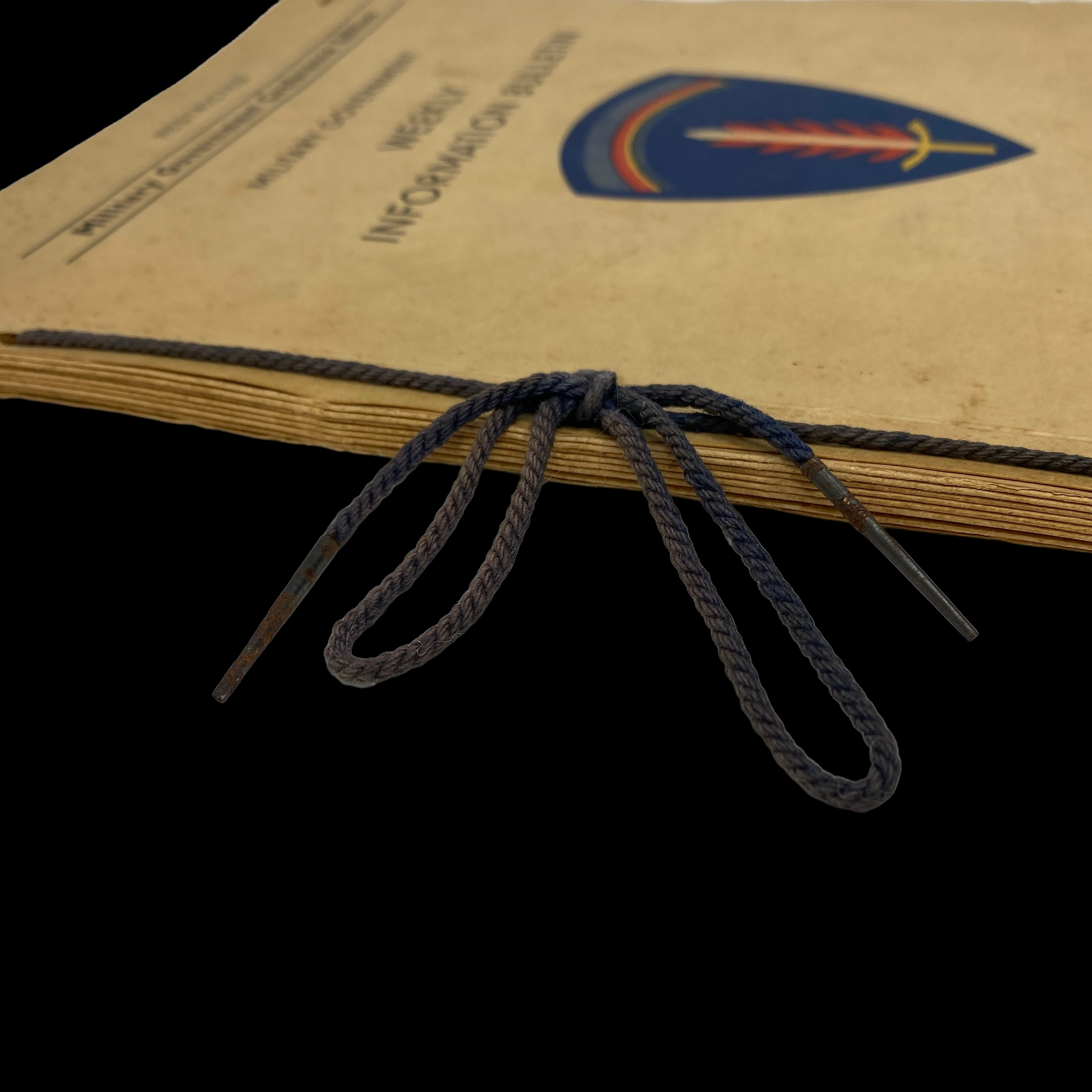
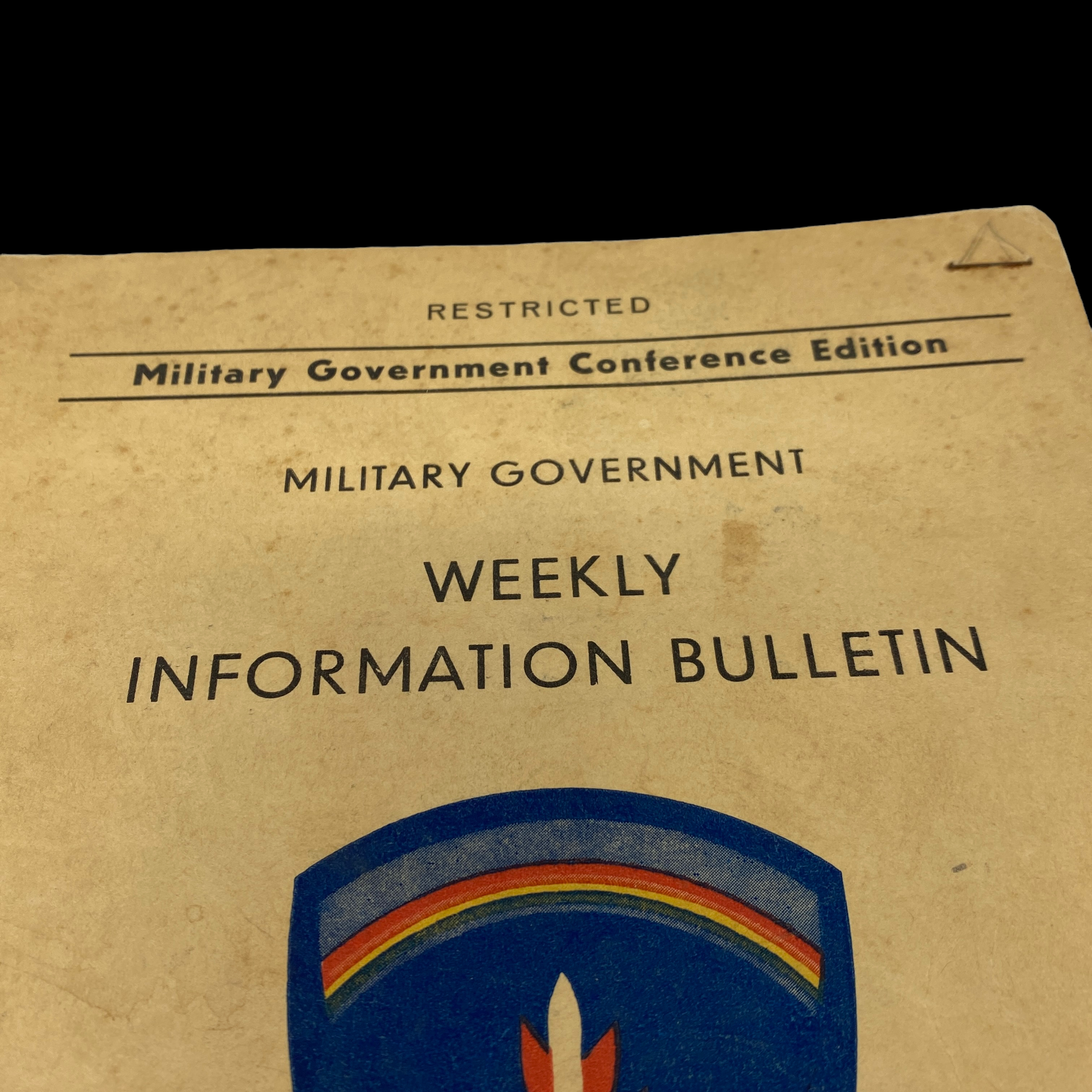


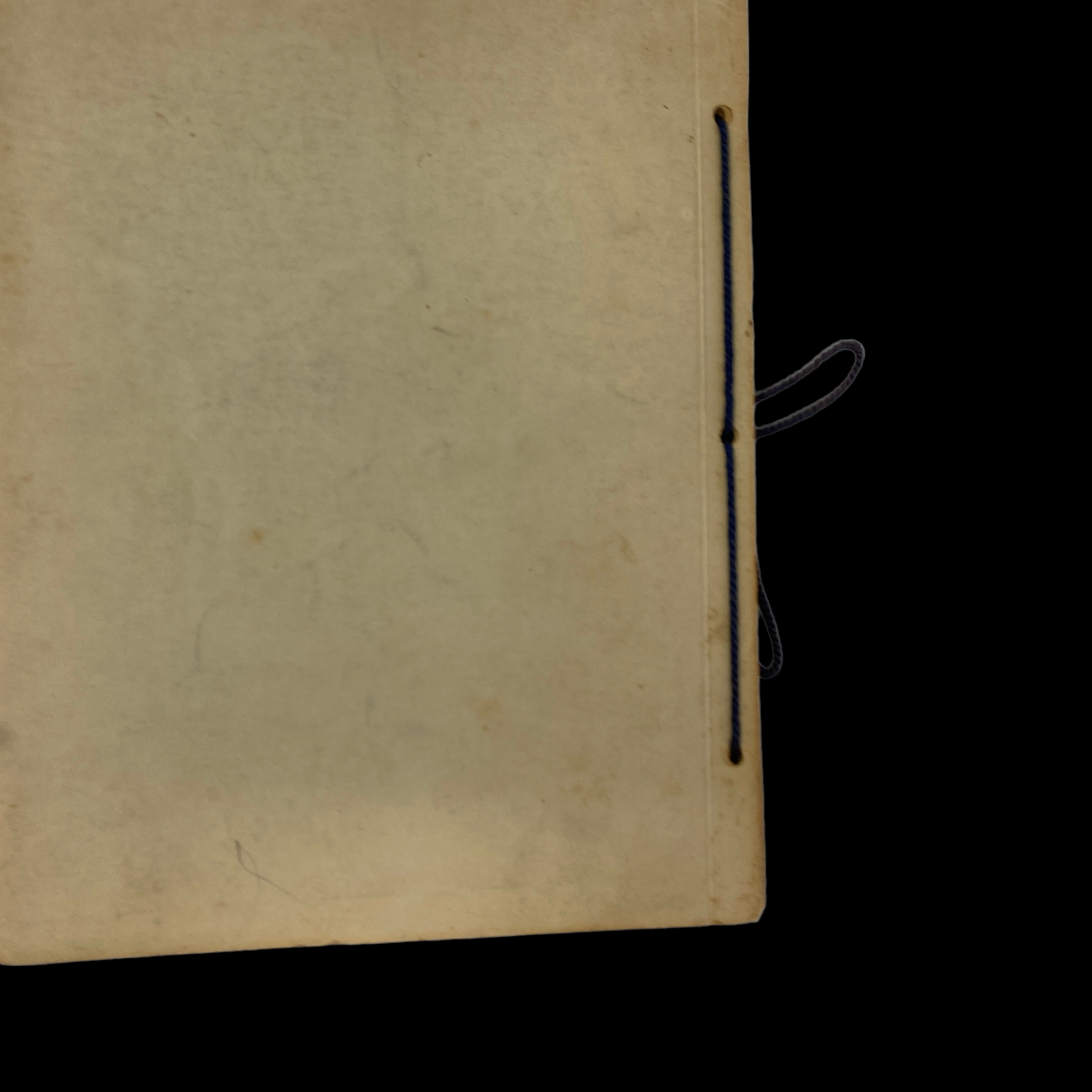
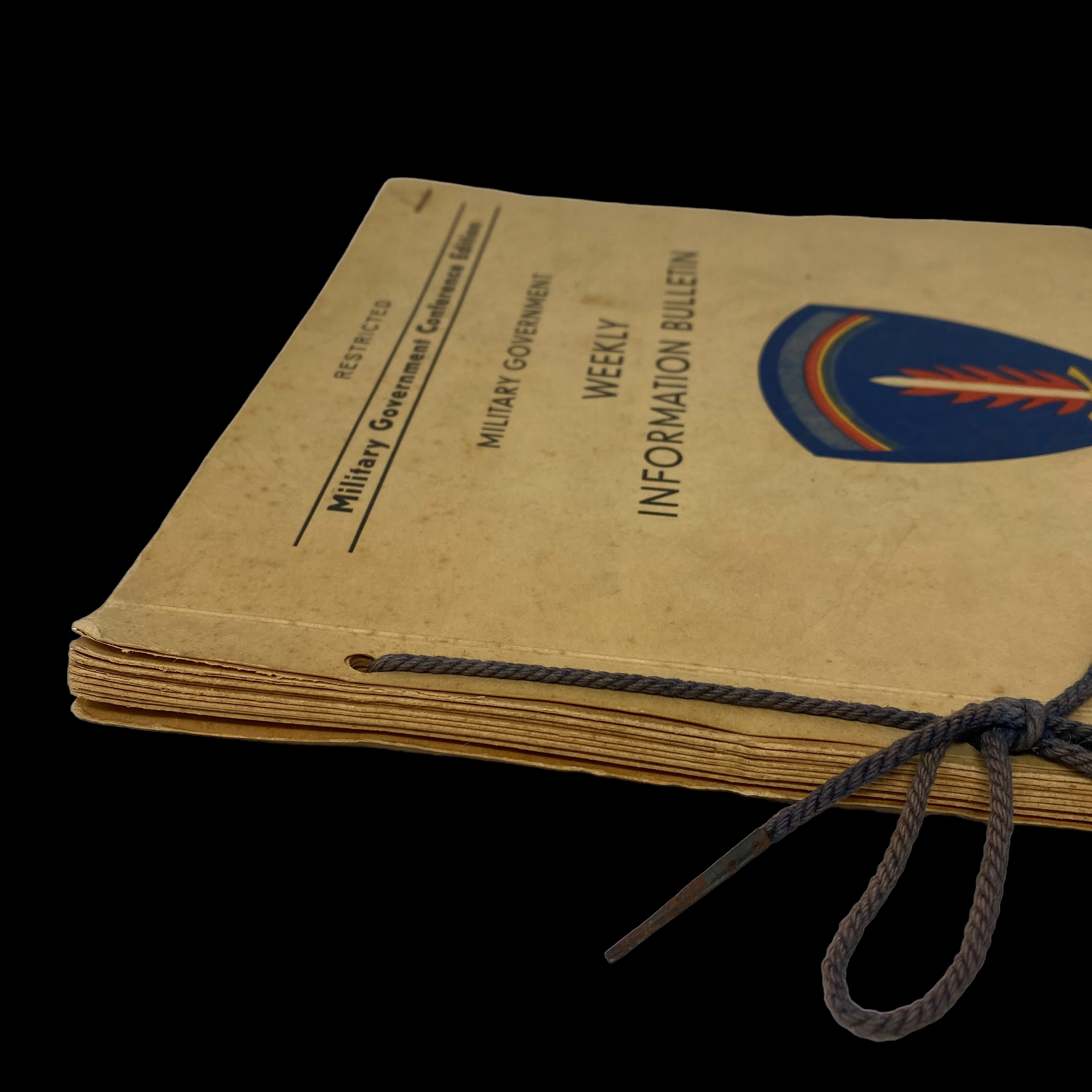
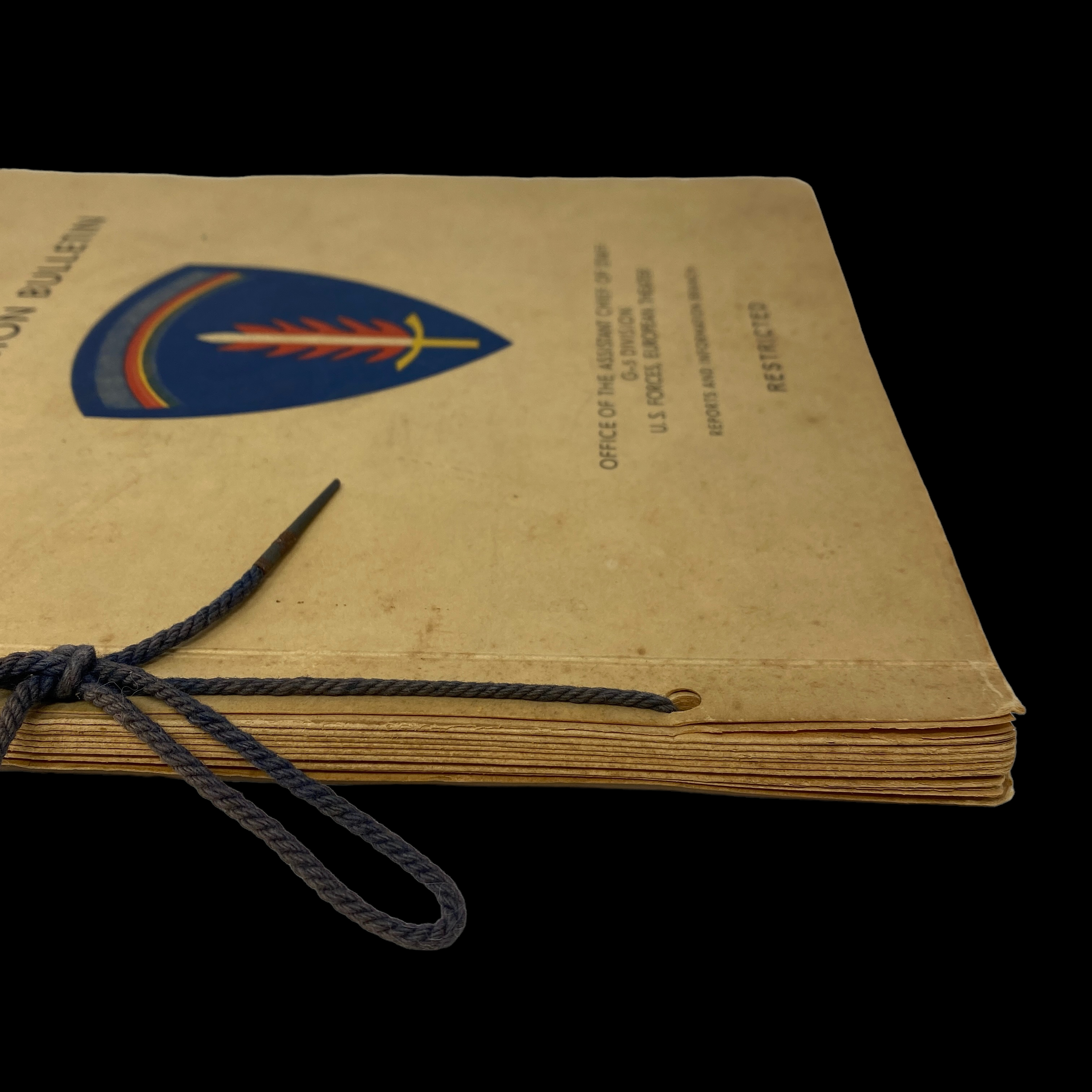
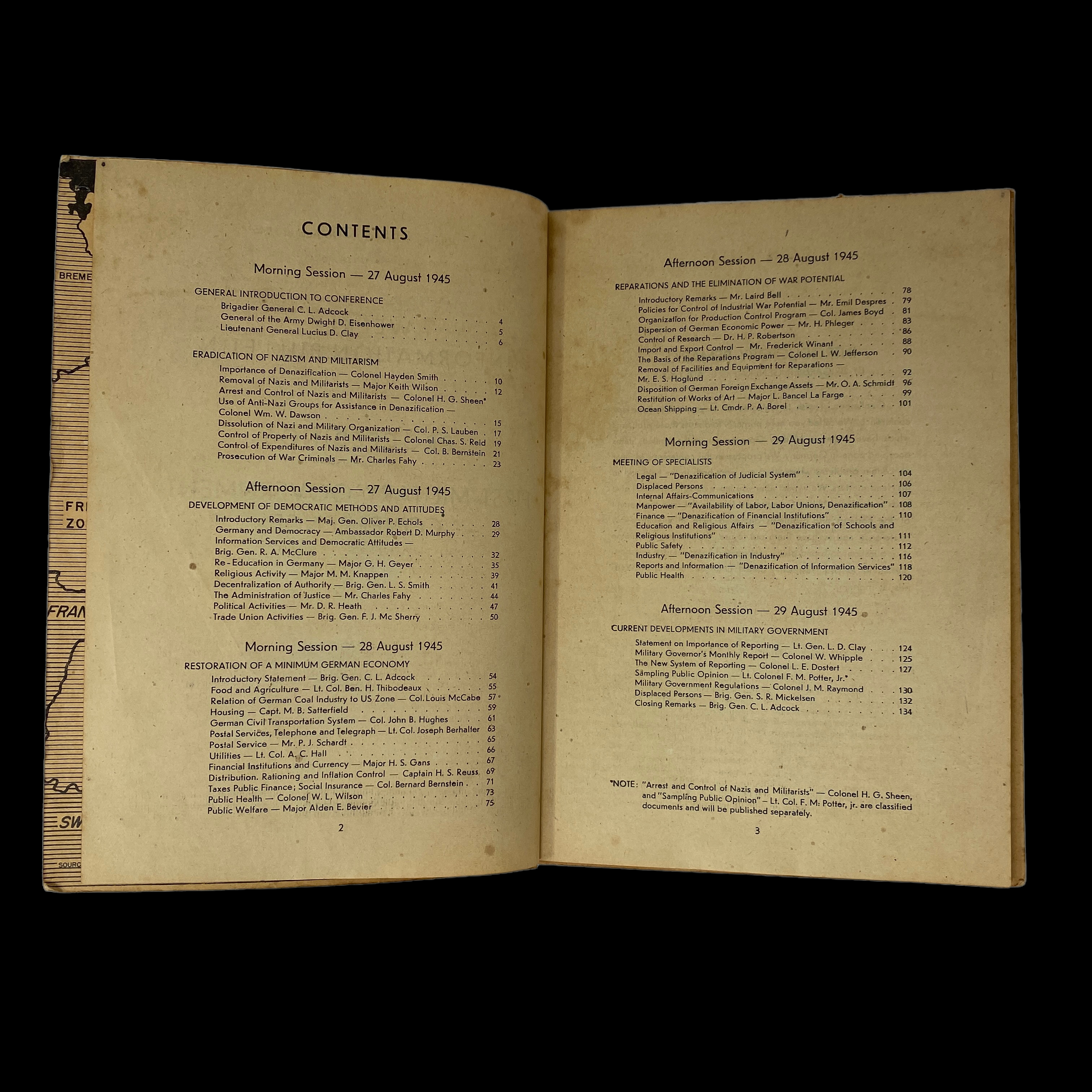
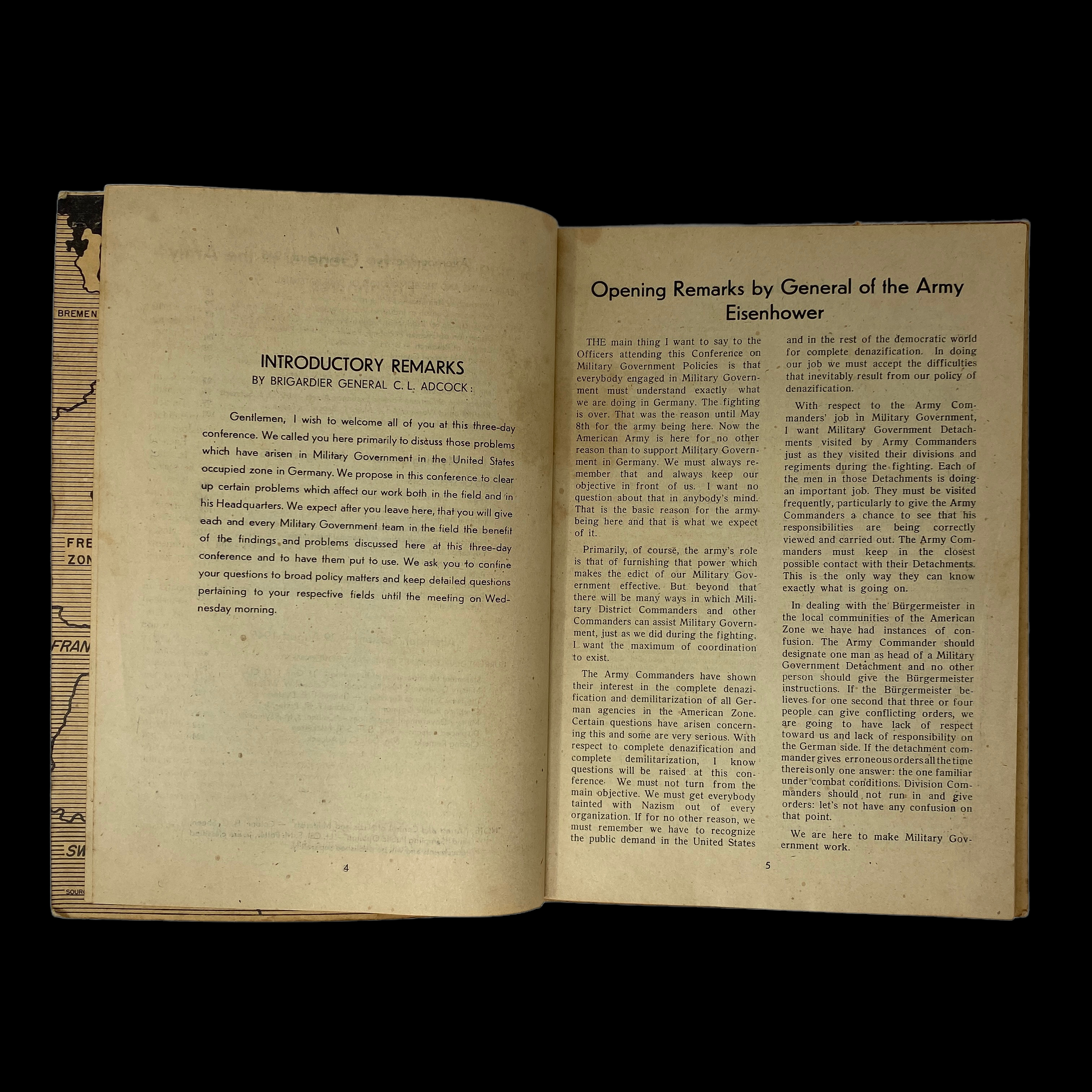
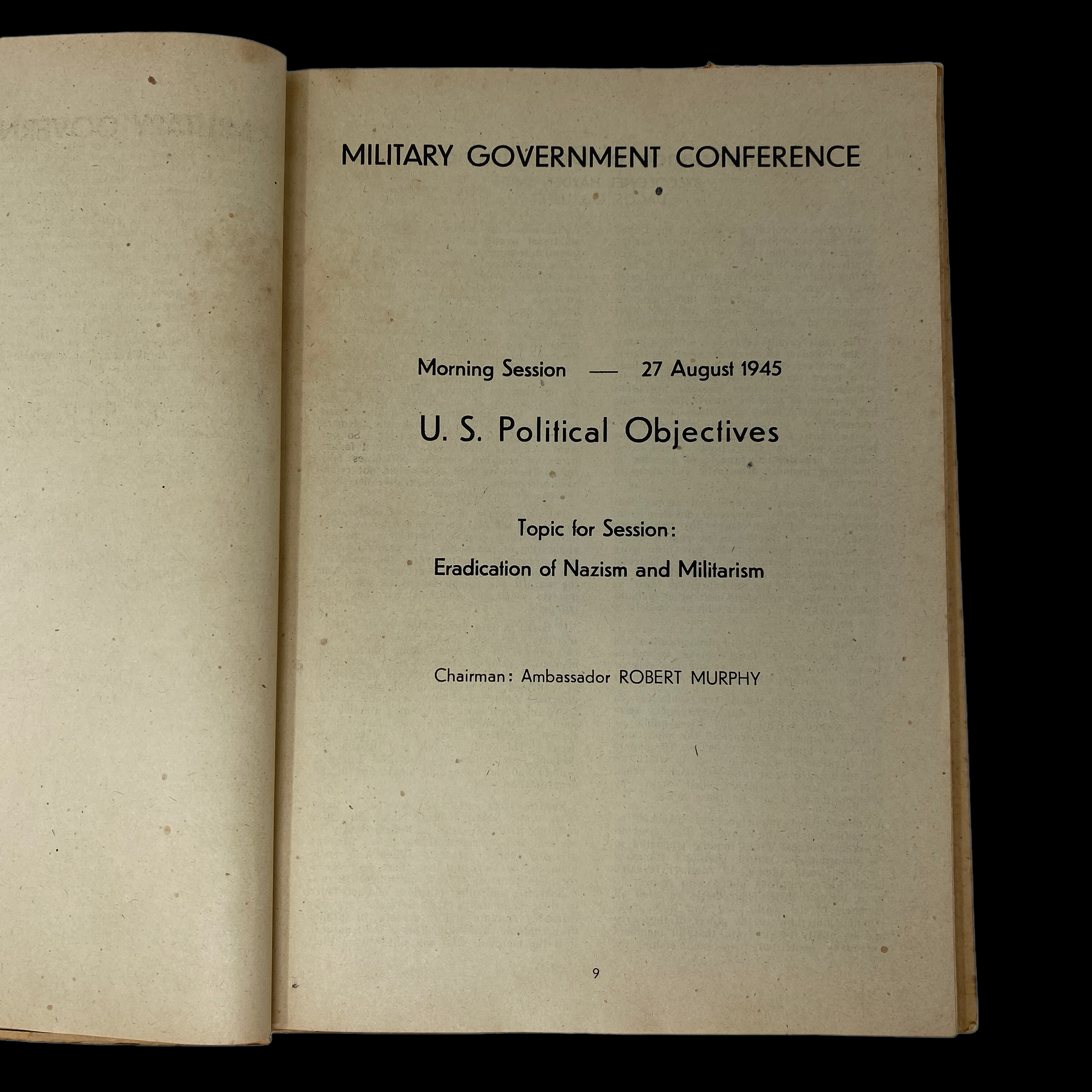
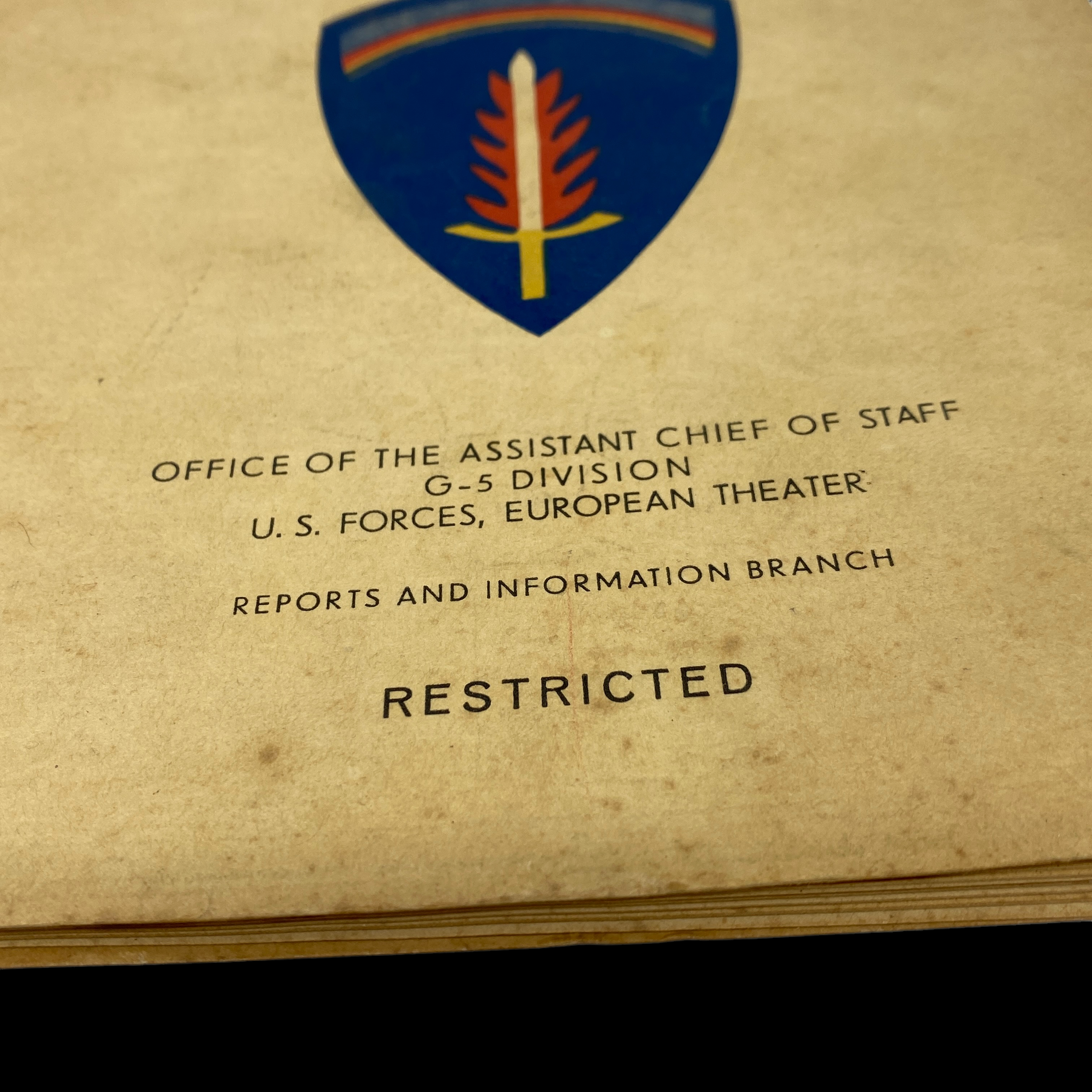
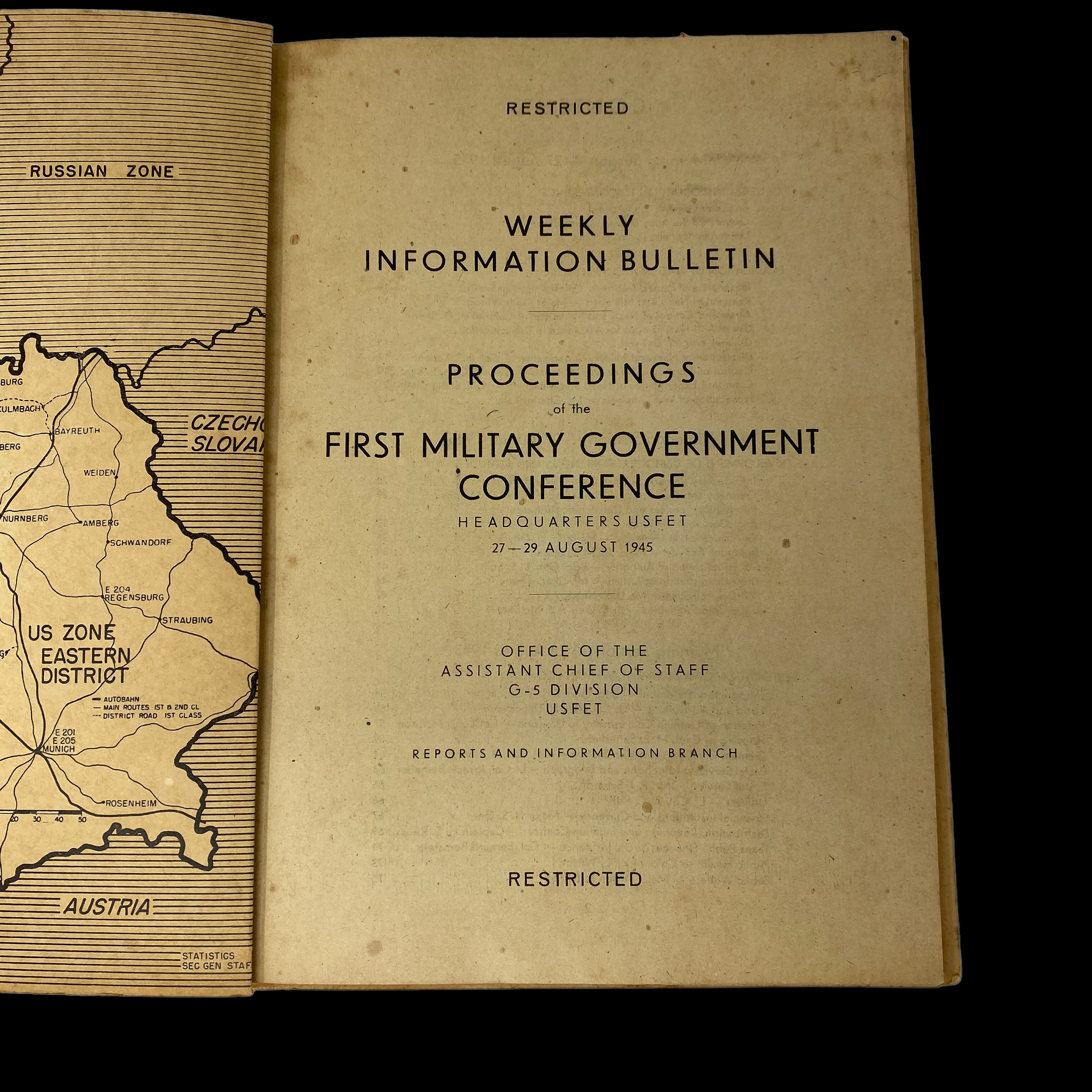





RARE! Original WWII August 1945 "RESTRICTED" Terminal Conference Germany Surrender Report
Comes with hand-signed C.O.A.
This incredibly rare and museum-grade WWII “RESTRICTED” marked Military Government Conference is an original report following the Potsdam Conference (July 17–August 2, 1945). The Terminal Conference (also known as the Potsdam Conference) was an Allied conference of World War II held at Potsdam, a suburb of Berlin. The chief participants were U.S. President Harry S. Truman, British Prime Minister Winston Churchill (or Clement Attlee, who became prime minister during the conference), and Soviet Premier Joseph Stalin.
This original military report details the weekly information bulletin of the proceedings of the first military government conference of USFET from August 27th-29th, 1945. This extremely detailed report was produced by the office of the Assistant Chief of Staff as well as the SHAEF (Supreme Headquarters Allied Expeditionary Force). The document is an incredible and rare look of an unseen historical document that details the Potsdam Conference’s Declaration on Germany where it stated, “It is the intention of the Allies that the German people be given the opportunity to prepare for the eventual reconstruction of their life on a democratic and peaceful basis.” The report starts off with opening remarks of General Eisenhower and proceeds with 134 pages of documents, strategies, and information regarding the restructuring and reconstruction of Germany following the surrender.
The Terminal Conference (also known as the Potsdam Conference) marked the final meeting of the Allied leaders during World War II. Held in Potsdam, Germany, from July 17 to August 2, 1945, the conference was notable for several reasons. First, Germany had unconditionally surrendered on May 8, allowing the Allies to devote the majority of Terminal’s planning to the war against Japan. Second, two members of the original Big Three would not attend the conference in its entirety. President Franklin D. Roosevelt had passed away on April 12, and his role at the meeting was filled by his successor Harry S. Truman. Winston S. Churchill, the British prime minister, was only present for the first part of the conference; he was replaced on July 26 by the newly elected Clement R. Attlee. Of the original Big Three leaders, only Soviet premier Joseph Stalin attended all of the meetings at Potsdam. Focusing almost exclusively on the Pacific campaign, the Allied leaders and the Combined Chiefs of Staff (CCS) discussed numerous topics related to the war against Japan. Primary among these was the unconditional surrender of Japan at the earliest possible date; this was the overall objective in the Asian theater. Two other items deliberated at length during Potsdam were the role of British participation in the Pacific war and US Navy and Army Air Force operations against Japan. Although the war in Europe had officially ended, the postwar situation there still received attention at the conference. For instance, the disposal of war matériel in Germany and Austria and the internationalization of the Danube River were the subject of reports and memorandums by the CCS prepared for the meetings. Terminal was one in a series of high-level conferences held by the US and British leaders in Washington, DC; Casablanca; Quebec; Cairo; Tehran; Malta; Yalta; and Potsdam to formulate the Allied grand strategy. At the Tehran, Yalta, and Potsdam conferences, the Soviet leader Stalin was also in attendance and played an important role. Reports, memorandums, position papers, and maps were prepared by the CCS for the conferences, and minutes were taken at the accompanying CCS meetings. Taken together, these documents address virtually every policy and strategy issue of the war, from troop deployments, to debates about the location and timing of key Allied offensives, to discussions about postwar occupation boundaries. Thus, they record the early years of the Joint Chiefs of Staff and serve as an indispensable primary source on the planning and conduct of World War II.